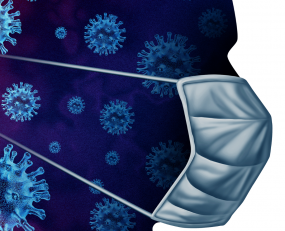
The road freight network of Europe is creaking and the bureaucracy of the EU is struggling to keep up.
With its Member States imposing a string of often quite extreme border closures and movement restrictions, the organisation is attempting to co-ordinate measures to ensure the continued movement of freight. Politicians appear to be getting worried about interruptions of supplies of food and industrial materials.
The latest country to impose border controls is Poland. Trucks and Polish citizens are allowed to enter Poland, however, the imposition of identity and medical checks has caused large queues to form on the key A4 highway between Germany and Poland. The situation is made more complicated by the need of people of the Baltic states to return home through Poland.
The resulting congestion is causing supply problems, although they appear to be temporary. Essentially the transport network is being overwhelmed by the movement of peoples returning to their home countries within the EU.
Other nations have also restricted movement with Spain, Portugal, France, Italy, the Czech Republic and Belgium already having considerable measures in place. In theory, road and rail freight are explicitly exempted however both are affected by measures such as road closures and border controls.
The nations of the EU have already agreed a policy to close borders to all passengers from outside the EU, however, a de facto policy seems to be emerging that citizens of individual member states must return to their own countries. It is very unclear where the UK fits into this, with Ursula von der Leyen, head of the EU commission, stating that restrictions would not apply to the UK as they were “Europeans”. It may be that the EU is concerned that the Irish Republic could be facing isolation if there were no movement across the UK. Britain generally has less draconian measures in-place although there are no suggestions that the major airports will close in the near future.
The suggestion being put forward by the EU and its Member States is that designated lanes for freight should be created. von der Leyen stated that it was “particularly crucial for essential goods such as food supplies including livestock, vital medical and protective equipment and supplies. More generally, control measures should not cause serious disruption of supply chains, essential services of general interest and of national economies and the EU economy as a whole. Member States should designate priority lanes for freight transport (e.g. via ‘green lanes’).”
The problem is the people really in charge are the nation-states and their priority is managing the epidemic inside their own borders.
The solution that seems to be emerging is that the various governments will coordinate with each other, as Germany and Poland are doing, to create of specific emergency ‘lanes’ for road and rail freight.
For all the latest COVID-19 coverage from Ti, visit our COVID-19 Hub.
Source: Transport Intelligence, March 18, 2020
Author: Thomas Cullen